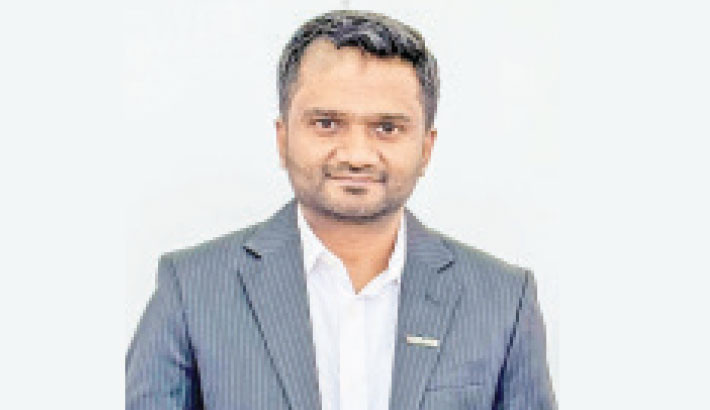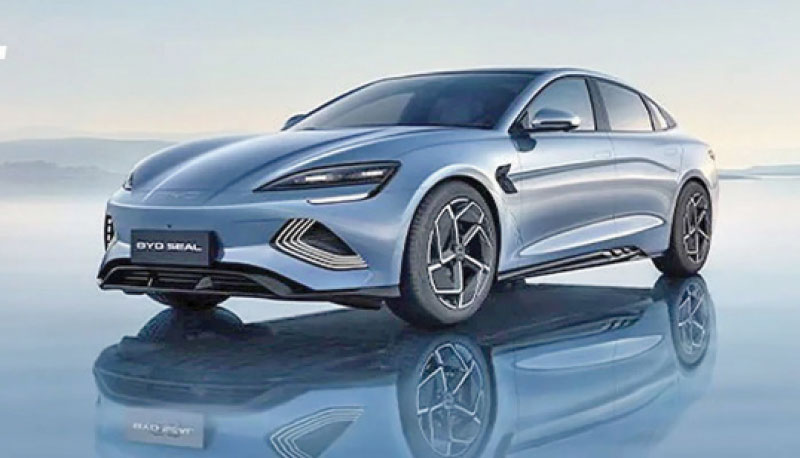
Naqeebul Islam Khan
Bangladesh wants 30% of its vehicles to be electric by 2030, but right now, we’re barely getting started. According to the Bangladesh Road Transport Authority (BRTA), since EV registrations began in September 2022, only about 500 electric vehicles have hit our roads — a drop in the ocean compared to the millions of fuel-powered cars still running.
Global EV giant BYD arrived in Bangladesh in March 2024 and has sold nearly 300 cars. It is now delivering over 50 units monthly. Tesla, Mercedes-Benz, BMW, and Audi have also introduced their electric models here. But there’s a catch — these cars remain expensive and beyond the reach of most Bangladeshis.
Import an electric car today and you’ll face around 89% in duties and taxes. Yes, that’s better than the 127% slapped on petrol cars, but it’s nowhere near enough to make EVs affordable. Compare this with Nepal, where import taxes on EVs are just 40%, versus 180% for petrol vehicles. No wonder 76% of Nepal’s passenger vehicles are now electric.

Here’s the real problem: according to the Bangladesh Energy Regulatory Commission (BERC), the country has only 14 charging stations nationwide. Imagine buying an electric car and worrying about running out of power with nowhere to recharge. That’s range anxiety — and it’s keeping people away.
Private companies such as BYD and Ekhon Charge are building charging stations on their own. BYD now operates several stations in partnership with third parties and provides free home chargers with each car. But without government backing, this charging network cannot expand quickly enough.
Nepal built 51 charging stations on highways and in cities with help from the Asian Development Bank (ADB). They made charging 15 times cheaper than filling up with petrol. That’s the kind of bold action Bangladesh needs.
The draft EV policy aims to cut customs duty on imported EVs from 25% to 5%. Local manufacturers aren’t happy — some experts warn this could kill domestic production before it even starts.
The interim government has announced certain benefits, reducing total duties to around 33% for locally made electric or hybrid cars. However, industry leaders argue that we need direct consumer incentives like those offered in India, China, and the United States — alongside genuine protection for local manufacturing.
Walk through Dhaka and you’ll see and smell the thick black smoke from old vehicles. Electric cars produce zero tailpipe emissions. More EVs mean cleaner air and fewer respiratory problems for our children.
Bangladesh also spends billions importing fossil fuels. If we power EVs with renewable energy, we could generate electricity at home — cutting our trade deficit and reducing dependence on oil-producing nations.
And let’s not forget, we are one of the countries most vulnerable to climate change. Bangladesh has pledged to cut carbon emissions by 21.85% by 2030, and transport accounts for 15% of total emissions. EVs aren’t just nice to have — they’re essential.
Professor Muhammad Yunus envisions a “World of Three Zeros” — zero poverty, zero unemployment, and zero net carbon emissions. To get there, Bangladesh must drastically slash taxes on EVs and urgently build a nationwide charging network, preferably with solar-powered stations in both cities and rural areas. We must support the industry with real incentives for all stakeholders, make financing easier with more favourable bank loans, expand green power so that our grid can support thousands of EVs, and set safety standards that include proper battery recycling.
With a stronger EV industry, there will be more charging stations, service centres, dealers, and trained mechanics — meaning more employment and business growth opportunities.
Norway and Nepal prove that both developed and developing nations can make this work. Nepal went from almost no EVs to three-quarters of all passenger vehicles in just five years, driven by aggressive tax breaks, affordable charging, and government-built infrastructure. Meanwhile, Norway has achieved 100% EV sales for new cars in 2025 through exemptions from purchase taxes and VAT, free access to toll roads and bus lanes, and proper taxation of internal combustion engine vehicles.
Bangladesh already has the building blocks: global brands are here, local factories are being set up, and public awareness is growing. What’s missing is decisive government action.
The world will add a billion vehicles by 2050. Much of tomorrow’s air quality depends on whether those vehicles run on petrol or electricity. We need lifestyles built on renewable energy, not fossil fuels.
Bangladesh stands at a crossroads. We can either seize this moment to build a cleaner transport future — or watch other countries race ahead while we choke on diesel fumes. The choice, and the clock, are both in our hands.
_____________________________________
Naqeebul Islam Khan is Lead, Offline Marketing and Category Development, BYD Bangladesh

